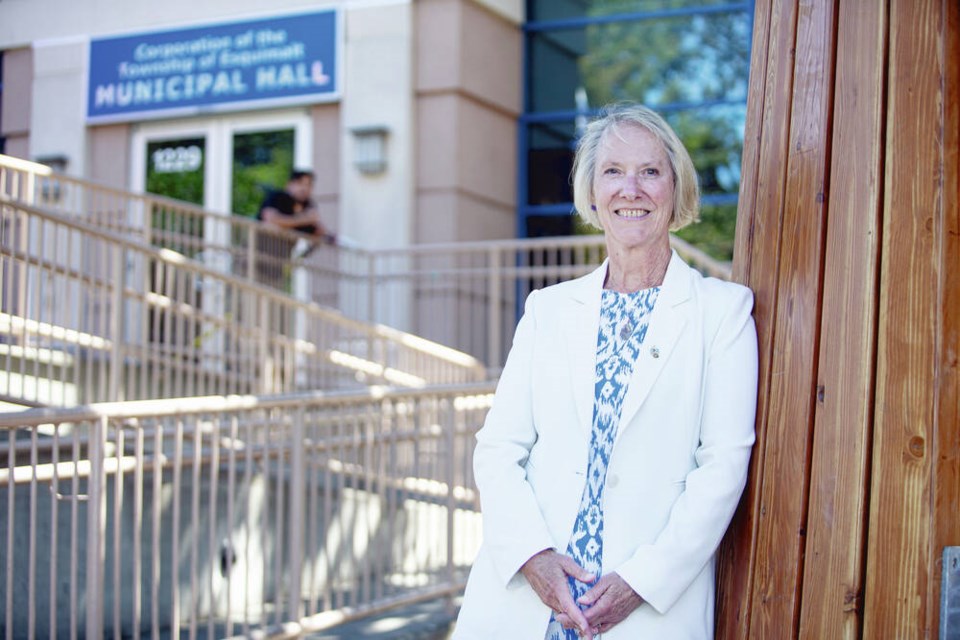One of the more unhappy marriages in the region will soldier on a little longer, after Esquimalt and Victoria agreed to extend their shared-policing agreement for a year.
The agreement, which Esquimalt has indicated it wants to pull out of as soon as possible, was due to expire at the end of the year.
The one-year extension is under the same terms and comes with two one-year extension options.
“Everybody, I think, is really relieved that we were able to to get this done without any challenges,” said Esquimalt Mayor Barb Desjardins, co-chair of the Victoria Esquimalt Police Board.
One of the big factors in the decision to extend is the fact that the consultant studying viable alternatives to shared policing has not completed its report, Desjardins said.
Without the report, which had been expected in the early fall, the township has been unable to study its options and work with residents to determine next steps, she said.
“We said we didn’t want to continue with the framework agreement because it really wasn’t meeting our needs, but given that we don’t yet know the next steps, this seemed to be the best route.”
Desjardins, who argues that Victoria needs more officers and resources, also said a new approach from the police board and in particular former provincial finance minister Elizabeth Cull, chair of the board’s finance committee, and Paul Faoro, chair of the board’s governance committee, has made the forced marriage more palatable.
“In the end, we haven’t solved our problems. But we have a very different police board this year, and with the new membership, there has been considerable reach out to communities to understand their needs and how to make sure that budgeting processes [reflect that],” she said.
“There’s a sense of being heard this time around.”
Desjardins said the fresh approach has meant more engagement with both communities to determine needs and priorities and figure out how the board can work with them to meet those needs.
The municipalities have been required to share the costs of policing since 2002.
Prior to that, Esquimalt had a joint police-fire department that had been in place since 1912. A standalone fire department was established in 2003 and 33 police officers joined VicPD.
Esquimalt has argued it has overpaid for services it doesn’t need and ends up subsidizing Victoria’s policing.
Esquimalt pays about 14 per cent of the VicPD budget, which is projected to be more than $70 million in 2024.
Esquimalt would need provincial approval to get out of the agreement, as well as plans for a new service model.
The province has told Esquimalt it will consider the township’s proposal, but it has also said the township must provide a detailed plan outlining the policing model as well as a transition plan in order to get approval.
Desjardins said the township has learned some lessons from the Surrey police debacle, in particular ensuring council has the will of its residents firmly in mind before making any move.
The province replaced the Surrey Police Board with an administrator, and removed Surrey Mayor Brenda Locke from her role in the city’s transition from the RCMP to an independent police force, after there was little progress on the transition.
Earlier, Solicitor General Mike Farnworth invoked the Police Act to direct the City of Surrey to move ahead with a transition to a municipal police force rather than return to using the RCMP.
The dispute over Surrey’s police force started in 2018, when former Surrey mayor Doug McCallum promised to replace the RCMP with the Surrey Police Service.
McCallum was ousted last year by Locke, who promised to reverse course and stick with the RCMP. When Locke was elected, the Surrey Police Service had already started hiring.



